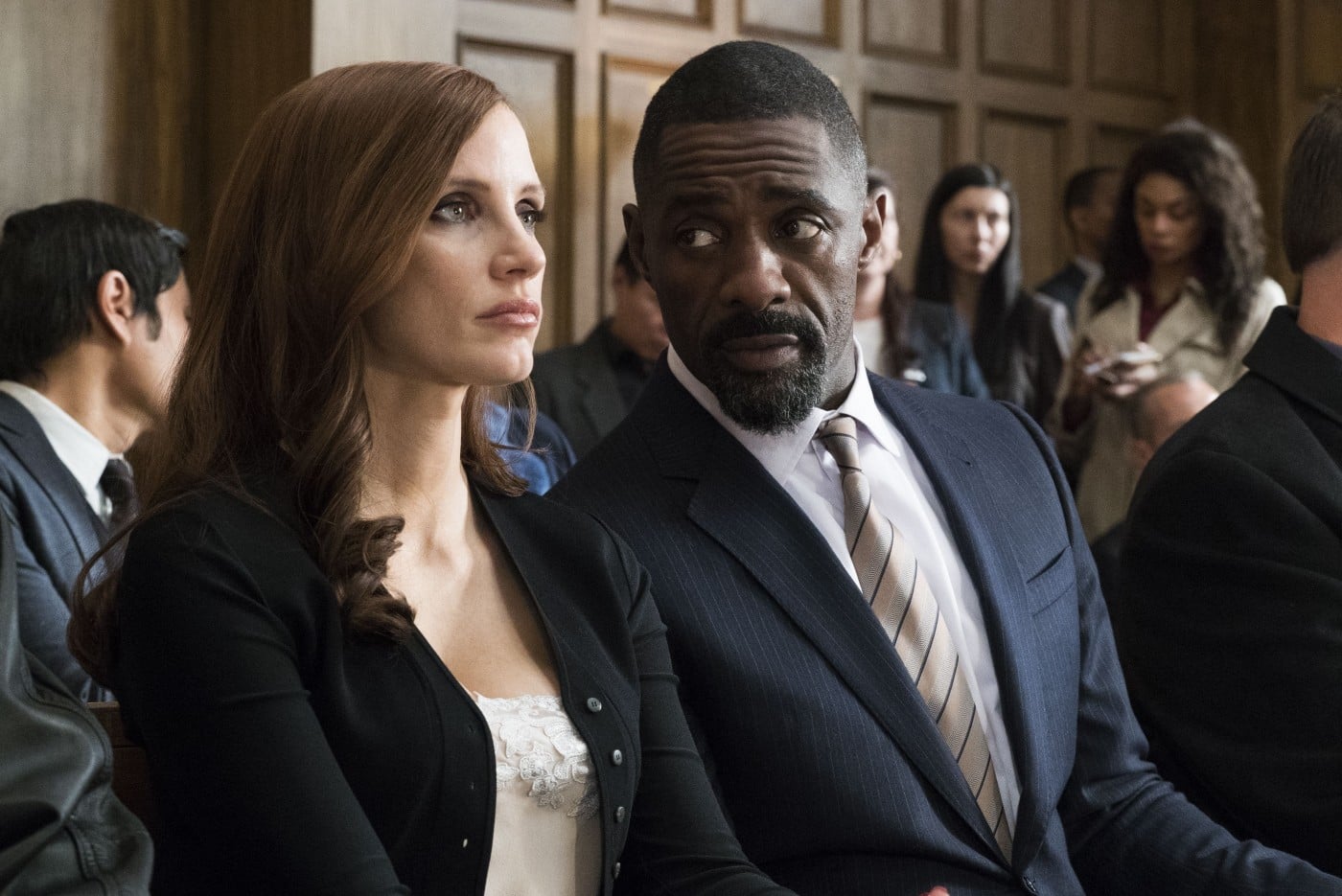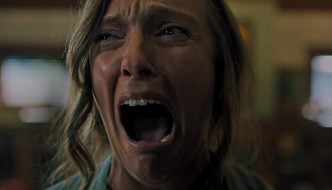Molly’s Game: Solid acting let down by weak scriptwriting in poker princess biopic
January 23, 2018

Image: Molly’s Game via HOME Manchester
The latest in Aaron Sorkin’s recent flurry of biopics, Molly’s Game, tells the true story of Molly Bloom, the one-time Olympic level skier who became the ‘poker princess’– the tabloid sensation who organised glamorous elite poker games that were host to movie stars, CEOs, and Russian mobsters. With gangsters and the police both closing in on her questionably legal operation, she was eventually taken to trial and asked to give the names of people involved in her organisation. But unlike Moneyball, The Social Network and Steve Jobs, Molly’s Game sees Sorkin direct his own script for the first time. And while it doesn’t hit the heights of his best biopics – namely the excellent Social Network – it certainly wasn’t the hubristic overload that one might have suspected would happen when a screenwriter as self-indulgent as Sorkin was allowed to direct his own script.
That may sound like a slightly harsh take on Sorkin, one of the most successful and respected writers working today, and maybe it is. His style, though, is rather take it or leave it – you either accept his heightened reality or, well, you don’t. Believable people and dialogue (believable in the sense that you could actually imagine talking to them) are not what Sorkin is interested in. The characters he’s interested in writing are intelligent, cold, and intensely articulate; the films they populate are built around demonstrating their skill for withering and verbose put-downs – usually at the expense of the chumps who dare to question their intellect. And at his best, the intricacy and intelligence of his writing is often impressive to see, almost taking on the character of music as dialogue is sent back and forth in salvos of lyrical wordplay. Yet one suspects the constant adoration and success he has achieved over the last twenty years has directly contributed to his rather frustrating penchants for speechifying and author surrogates that seek to explain to us why these hyper-intelligent and deeply horrible people like Steve Jobs and Mark Zuckerberg (both of whom Sorkin probably has a little too much admiration for) deserve our respect and deference.
In comparison to those two, however, Molly Bloom is probably Sorkin’s most sympathetic subject to date. Played by Jessica Chastain (whose no-nonsense and dry persona make her a perfect Sorkin foil), Bloom, after suffering a career ending skiing injury, goes to LA and becomes tangled up in, and eventually takes over, a legendary high stakes poker night where CEOs and oligarchs would rub shoulders with stars like Ben Affleck and Leonardo DiCaprio. The film jumps between her rise and the eventual court case, in which she teams up with Idris Elba as a high-flying lawyer to clear her name. It’s in the poker-centric portions where the film is at its most enjoyable. We get to see a variety of stand-ins for all these famous figures (though, of course, it’d be more fun if we knew who they were standing in for) that actually played in Molly’s games, the best of which is Michael Cera as Player X, a famous actor (supposedly based on Tobey Maguire) who enjoys seeing people lose more than he enjoys winning. He’s great precisely because it’s interesting to see these hitherto unknown sadistic tendencies that Maguire (allegedly) had, and it’s played admirably by Cera, who effectively coalesces the nebbish and callous aspects of his character. (Bloom went even further in her book, recounting a story where Maguire once offered her $1000 to bark like a seal and then stormed away in anger when she said no).
I’d hesitate to call the sections that focus on the trial bad, but they’re certainly the more ‘Sorkin-ish’ part of the movie. Largely consisting of Elba and Chastain trading barbs in his office and, predictably, speechifying about Molly’s intelligence and the injustice of her facing criminal charges for the poker games. The familiar sense of self-indulgence only creeps further in upon realising Elba’s Charlie Jaffey is a fictional character – seemingly serving as (another) author surrogate who, after overcoming some early cynicism, comes to respect and admire Bloom’s savvy. It’s not so much that having an author surrogate is inherently bad, but rather that when Sorkin does it it’s so nakedly him, the author, explicating what he feels about the story and characters he is presenting. Of course, all stories project the feelings and views of their creator in some way, as they should, but one hopes the author’s voice can be baked organically and unobtrusively into the piece; when Sorkin does it, it’s with such pomp and obvious lack of regard for how it blends with the story itself – which just goes to show, I think, that what Sorkin needs more than anything is an editor to stand up to him.
It was this editorial influence, one suspects, that made The Social Network so great. David Fincher managed to emphasise Sorkin’s qualities and mute the weaker aspects of his script; making a deeply compelling and involving movie that centred largely on people typing and looking pensively into laptop screens. I mentioned before the fear that, given directorial control, Sorkin’s worst tendencies would be allowed to run wild, but, to his credit, that’s not exactly what’s happened. In fact, it’s arguably less Sorkin-esque than Danny Boyle’s Steve Jobs, (a movie that was made entirely of speeches testifying to the virtuosic genius of Jobs and tacit dismissals of his bad behaviour). No, Sorkin’s direction certainly isn’t terrible or (too) self-indulgent, but, somehow, a movie that is theoretically much more titillating (movie stars, gangsters, high-stakes poker!) than The Social Network, is actually much less gripping and involving than it really should be.
It’s hard to nail down exactly why this is. That Sorkin isn’t a director of Fincher’s quality is perhaps the obvious observation but, equally, in comparison to his other recent movies, the script here seems noticeably weaker. Bloom’s father (played by Kevin Costner) appears briefly in the early sections, and it’s his overbearing and pushy treatment of Molly, the film implies, that is the cause of her desire and will to succeed. The film then largely forgets about him until it decides there needs to be an emotional reconciliation that rests on a build-up and relationship that simply aren’t there. Costner’s character essentially serves as a deus ex machina at Molly’s lowest moment (turning up out of the blue and finding her on the Central Park ice-rink, no less) to give her “three years of therapy in three minutes”. That’s not just convenient and unnecessary, it’s bad screenwriting, and weirdly amateurish from a writer like Sorkin.
But looking back over Sorkin’s previous work, it’s clear that he prefers to bend his stories and events to fit the characters he’s writing about, not the other way around. That’s fine; it’s always better to play with real-life events in a way that serve the characters rather than slavishly recreating the facts. So, for instance, when we’re told Zuckerberg betrayed his best friend out of jealousy that he was admitted into a club when he, Zuckerberg, wasn’t, we accept it despite of its unlikeliness and presumption because it felt earned and real. Yet Sorkin is so clearly loathe to do anything but write the characters and their arcs as he wants that he can sacrifice some of what made the story interesting and compelling in the first place – in this case having twisted the logic of the story to create an unearned emotional payoff for its characters.
None of this is to say that Molly’s Game is a bad movie; in fact, it’s fairly passable. The acting is solid across the board and it couldn’t be called boring. But it leaves one feeling that seeing Sorkin really indulge his worst instincts would at least have been more interesting; what we have here feels like bland imitation of a Sorkin movie, which is pretty weird when you think about it.
Filed under: Film, TV & Tech
Tagged with: Aaron Sorkin, biopic, film, film review, HOME, homemcr, Molly's Game



Comments